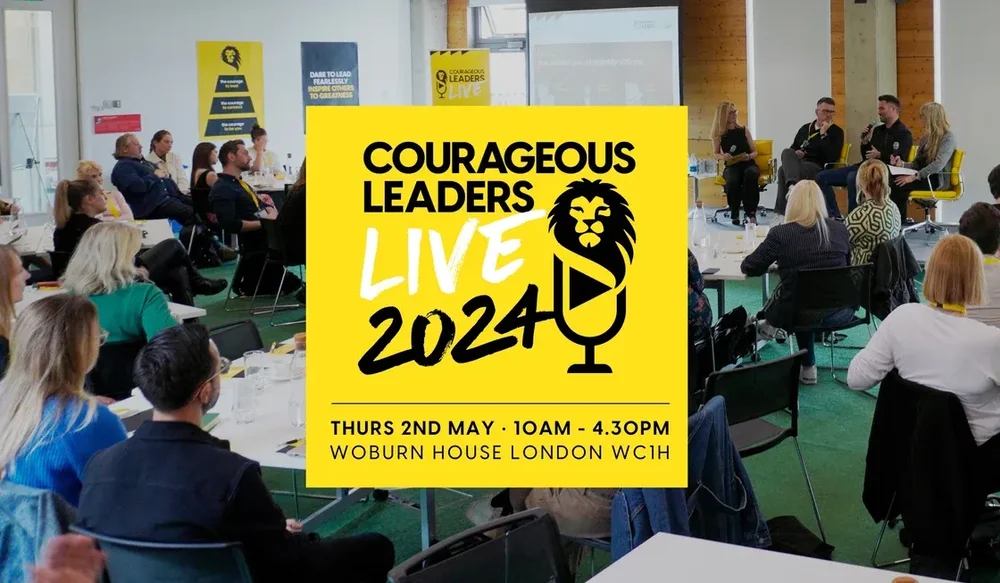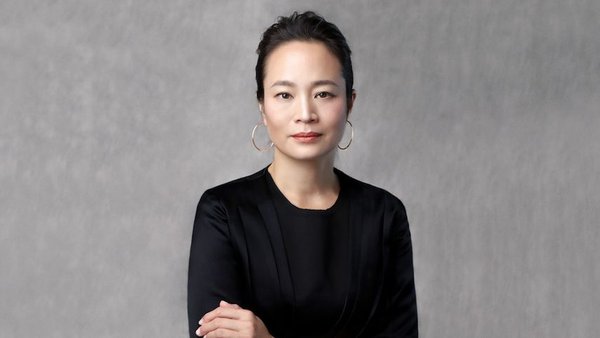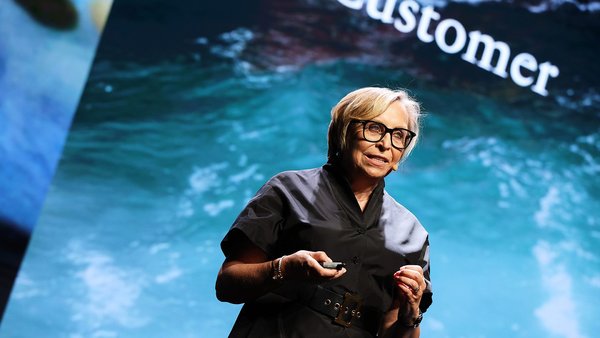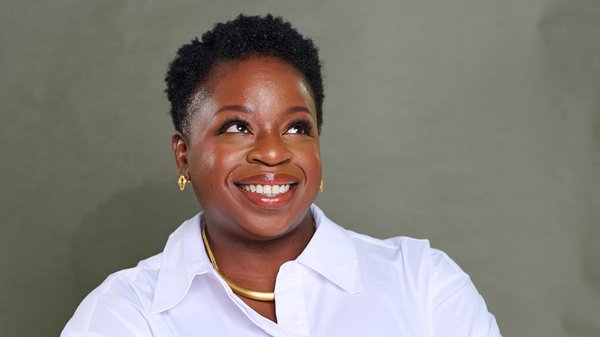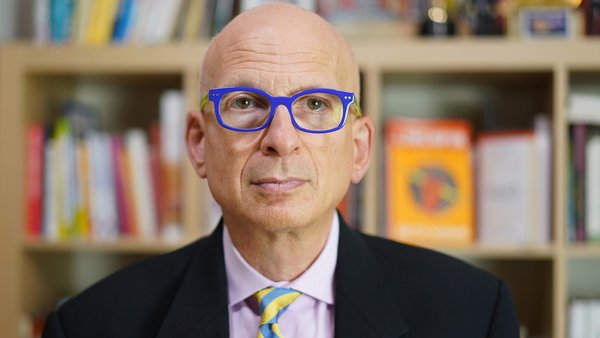My leadership diet: Efrain Ayala /
Reckitt's global creativity and D&I director shares his tips and techniques for better leadership

Photo by Jehyun Sung on Unsplash
Have you ever wondered what leaders in the advertising and marketing industry do to make themselves better?
To be honest, we hadn’t. But since we’re partnering with the Courageous Leaders: Live event in London on 2 May, we thought that we should. So we asked.
Efrain Ayala is the global creative effectiveness and diversity & inclusion director at Reckitt. He joined the company in 2015 to lead the social social strategy for its US brands, and then spent two years as part of the global media team until 2020, when he took on his current role, with the goal of helping to create brands that positively impact society, as well as prosper.
(Ayala will be speaking at Courageous Leaders: Live. Click here to book your place.)
How would you describe your leadership style?
Leadership isn’t static; it’s a dynamic force that evolves. At Reckitt, as the global creative effectiveness and diversity & inclusion director, my leadership is about empowering others — distributing power to let individuals and teams harness our iconic brands for growth and societal impact.
Redefining successful leadership is crucial. Traditionally, it’s been about holding onto power. But the most fulfilling moments in my career have come from sharing that power. When building Reckitt’s DEI marketing practice, I encountered a team hesitant to lean in and ensure their work was as inclusive as it could be because they thought that was my role. Because ‘D&I’ wasn’t in their titles. By shifting the power back to them, they embraced their role as DEI leaders, and it resulted in them producing industry-recognised work.
My leadership style is about giving away power — letting others step into it and enabling a community that can create a positive impact.
What do you do to make yourself a better leader?
Leadership is a journey. It’s not about willing change into existence; it’s about the hard work and dedication to evolve. When I embraced the DEI role at Reckitt — one that was new for me and Reckitt both, it was clear that the leadership that carried me through my career up until that point, needed to adapt. To create a movement within Reckitt centered on building brands in ways that create positive impact, beyond just business growth, required much more of me than I really understood at first.
To navigate this new chapter, I partnered with an executive coach to refine my leadership traits and develop new ones. I recognise that not everyone has access to such resources, but I’ve found that seeking feedback is equally crucial. It’s about actively soliciting insights from peers, managers, and stakeholders.
Yes, asking for feedback can be challenging and at times a bit awkward, but the benefit is clear if you are on the mission to have a positive impact. Start by asking your closest colleagues to get into the practice, and then expand who you seek feedback from, and over time you’ll create a dynamic that enables open dialogue and collective leadership development.
How do you identify and compensate for your shortcomings as a leader?
In my leadership journey, I’ve always valued diverse viewpoints. I’m proactive in asking how I can support others in reaching their goals. Reflecting on my days at Ogilvy & Mather Chicago, a member of the leadership team said to me once: ‘A leader’s role is to make their team look good — and in return, they’ll do the same for the leader and each other.’ And it’s really stuck with me all these years later.
Now, I see my leadership as a platform for others to shine within Reckitt. Success isn’t a zero-sum game; it’s about lifting each other to new heights.
Also, there will be times when you let yourself and others down. Don’t try to avoid learning from those experiences. Face into them — and take a learning from that experience forward. Self-reflection is easier than it sounds. But it is worth the effort.
What are the best resources for learning about leadership?
Susan Cain’s ‘Quiet’ was a pivotal read for me, reshaping my understanding of leadership. It arrived at a moment when I was questioning the traditional power-centric model of leadership. Cain’s work debunks the myth that effective leadership is the sole domain of extroverts, spotlighting the introspective power of introverts.
Her insights resonated with me, revealing that my approach to leadership was more performative, adhering to an outdated and singular blueprint. Cain argues that extroversion is often overvalued in corporate settings, mistakenly equated with leadership success. This realisation was transformative, prompting me to refine my leadership style into one that’s more nuanced and empathetic, enhancing not only my self-awareness but also my ability to understand and empower those around me.
Efrain Ayala, Reckitt
Do you have a mentor? If so, who is it and what’s the most important thing you have learned from them?
My leadership philosophy isn’t etched in stone; it’s been moulded by a myriad of influences throughout my career. I’ve never had a formal mentor, yet I’ve been fortunate to have guidance from leaders throughout my career, like Alice Moore, who I reported to as I stepped into the D&I role at Reckitt. She taught me the importance of agility and flexibility when leading a diverse group of stakeholders. I vividly recall a debrief after a challenging call where Alice encouraged me to consider the ‘game’ being played in each interaction. Understanding whether it’s chess, table-tennis, or a quiz game can profoundly change how you engage with people. This insight unlocked a new dimension in my leadership, prompting me to develop a broader skill set.

Photo by JESHOOTS.COM on Unsplash
Then there’s Ali Hanan of Creative Equals, whose insights continue to influence my leadership journey. It’s the collective wisdom of these individuals that has enriched my understanding of leadership, teaching me the value of diverse perspectives and the power of inclusive thinking.
What advice would you give to someone who wants to become a leader?
In our pursuit of leadership, let’s shift our focus. Rather than merely accumulating and wielding power, consider how we can give it away to elevate others. True leadership lies not in hoarding authority, but in creating opportunities for those around us to shine.
My journey has taught me that my leadership is most impactful when I work alongside others, supporting their growth and opening doors for them. By connecting with people and fostering shared success, we create spaces where everyone thrives. This approach is not just about business; it’s about leaving a lasting impact on the lives of those we lead.
So, let’s redefine leadership — not as a solitary pursuit of power, but as a collaborative effort to empower and uplift. Together, we can build a legacy that extends far beyond the boardroom.

Which leader (in real life or in fiction) do you admire most and why?
Amy Poehler's portrayal of Leslie Knope in the American sitcom, Parks & Rec. The fictional leader of a small town's parks department has some leadership skills that I think are key to the leadership blueprint I want to emulate. It may sound a bit silly given how absurd the character of Leslie Knope can be at times, but at the core of her leadership style is positive perseverance, no matter how steep the work may seem, there’s a ‘can-do’ mentality that can be quite powerful
She also respects the community around her —- and is laser focused on creating shared success. That is the cornerstone to effective DEI work, but also what I think it takes to leave a lasting, positive impact on those around you.
And lastly, Knope’s adaptability. Of course, in a workplace sitcom, the hero is met with all sorts of twists and turns, but she always adapted and met the challenge never compromising on her principles. We will all face unexpected challenges in our journeys, and standing by your values and principles is something that is not only self-empowering but clearly signals the type of leader you are.
Want more of the same? /
We don’t just write about best-in-class campaigns, interviews and trends. Our Members also receive access to briefings, online training, webinars, live events and much more.
